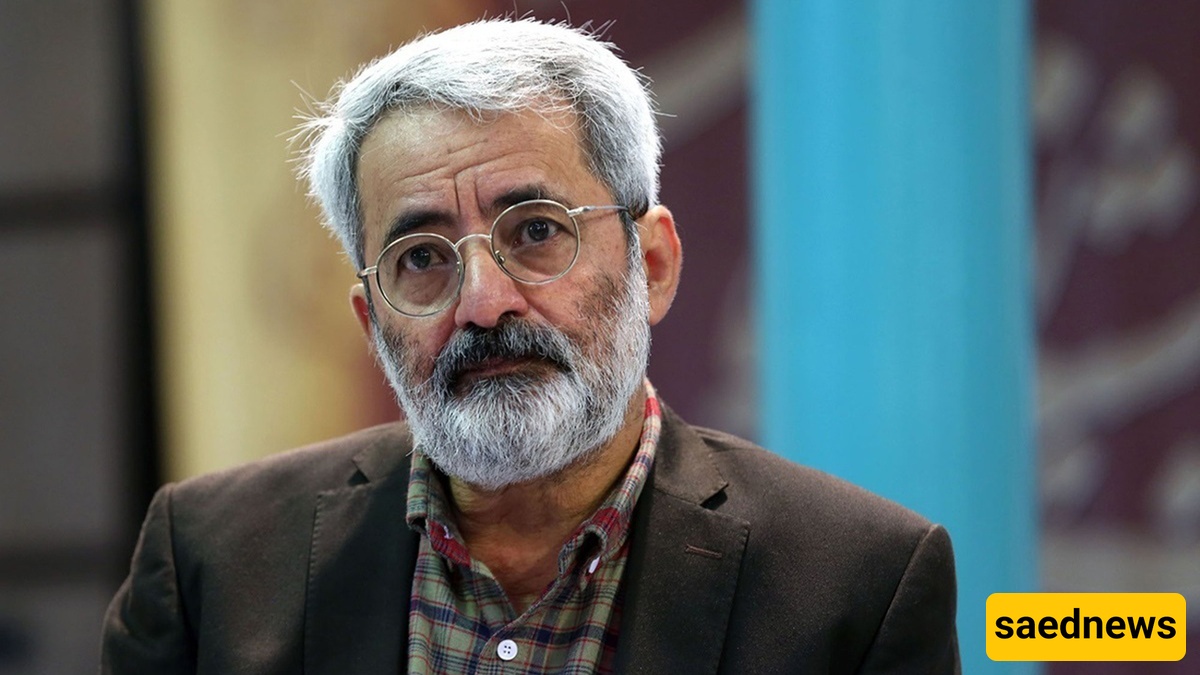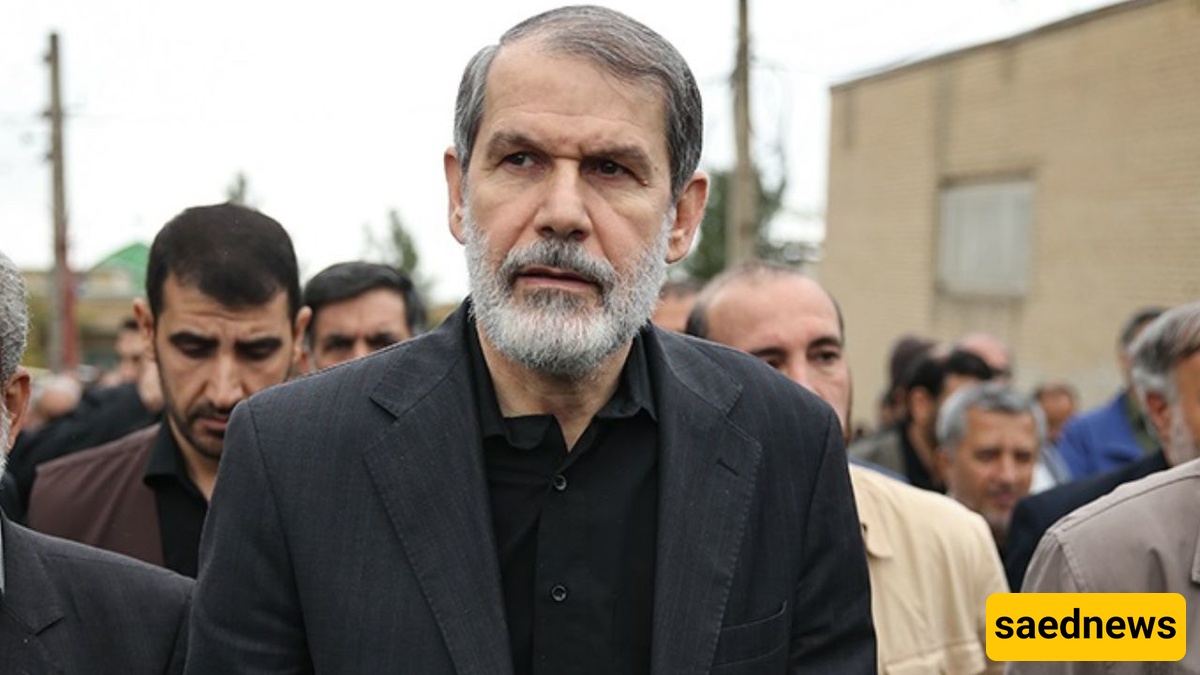SAEDNEWS: Abbas Salimi Namin sharply critiques the Stability Front’s political arrogance, closed-mindedness, and power-seeking behavior, urging humility, openness to criticism, and inclusion of capable political figures like Ali Larijani to strengthen Iranian society and politics.

According to Saed News, Abbas Salimi Namin, referring to remarks made by Sadegh Mahsuli in a recent interview—where Mashhoumi stated, “Over the past years we have issued numerous statements but no one has been able to prove a single mistake by the Stability Front,” and “We have been assigned to stand against falsehood”—said: “Self-importance is one of the serious afflictions affecting both our politicians and our political parties.”

He continued: “How does this self-importance arise? Either through flattery or due to narrow-mindedness. A person of broad vision never considers themselves free from error. Certainly, humans are fallible. Therefore, people should always seek for God to overlook their mistakes, because making mistakes is part of human nature, and it is not a fault in itself. What is truly a fault is to remain stuck in one’s errors.”
He added: “The defective mindset of the Stability Front has caused it to treat others in the worst possible way. This is regrettable, because humans can make mistakes, but enlightened people are those who immediately recognize and correct their errors and do not insist on them. This flawed view—where one never sees their own mistakes—is precisely why the Stability Front behaves so harshly toward others, while humans should be very strict with themselves and lenient with others. In the Stability Front, we see the exact opposite.”
Salimi Namin emphasized: “They are harsh on others because they consider themselves infallible. Hence, they always try to find others’ weaknesses. This is a serious problem for the Stability Front. I hope they abandon these delusions and at least pay attention to religious teachings. Anyone entering the political arena must accept that they will make mistakes and must be ready to correct themselves—that is, first accept the error and then work to fix it.”
He explained that “the mutual constant approval among members of this faction has led to this error. Also, a closed structure fosters this problem. If an organization is open and listens to criticisms, it would not fall into such delusions. It shows that these gentlemen are enclosed in a closed loop and are deluded about this issue.”
Regarding the extent of the Stability Front’s errors, the conservative political activist said: “Their errors are much greater than what has been stated. From the beginning, when the Stability Front was formed, they openly declared that they never sought power but came to promote principles. Yet we never saw them act on this; they have always pursued more power and attacked others to increase their share. I hope these illusions end so they can play an effective role.”
On whether the statements by some members of the Stability Front, some of whom are in parliament, could undermine the social cohesion achieved after the war, he said: “Their impact on the unity of society is not very significant; it cannot be said that they are the source of social unity or incidents. This does not reflect reality.”
Referring to the appointment of Ali Larijani as Secretary of the Supreme National Security Council and the possibility of changes in the council’s approach, Salimi Namin said: “This question has some common points with the previous one. One very wrong approach of the Stability Front is the elimination of societal capabilities. For example, under the pretext of wanting to reform our society, they have restricted or expelled capable individuals.”
He continued: “One very inappropriate function of the Stability Front was to say that certain personalities must be destroyed because their presence is harmful to society and religion. On the contrary, the more human resources we have, the stronger and more resilient our society will be.”
Salimi Namin stated: “There were many attempts to discredit prominent figures like Mr. Qalibaf, Ali Larijani, Haddad Adel, and some tested personalities under very lowly pretexts. When I say ‘lowly,’ I mean as I said at the beginning: people can make mistakes. But to treat a mistake as an unforgivable sin and exclude people from society causes increasing vulnerability.”
He added: “This scenario started mainly before the Stability Front, during Ahmadinejad’s time. We can and should criticize our figures, but we must realize that capable individuals are not so numerous that we can easily exclude anyone on any pretext.”
Regarding efforts to remove Qalibaf from the political scene, the conservative political activist said: “What we are witnessing today calls into question the Stability Front’s entire approach. They have been fully engaged in elimination efforts, but fortunately, these attempts are failing and we are respecting our capabilities and talents, which is very valuable. Because their governance perspective is flawed and superficial, they say, ‘What problem does Mr. So-and-so have? He can be Speaker, although he may not even manage a small shop.’”
He said: “Such an outlook allows them to easily sideline individuals. However, we saw that even their candidates in parliament could not secure support from their own allies. They came forward and used all their efforts to eliminate Qalibaf politically, but even their parliamentary supporters did not back their candidates.”
Salimi Namin concluded: “Therefore, these ongoing developments seem very hopeful to me, because narrow-minded currents have failed to reduce society to their limited mental framework. The Stability Front has a limited mindset and has tried hard to diminish our society to this small mold, but fortunately, recent developments show a serious will to overturn this approach.”
Referring again to the new secretary of the Supreme National Security Council, he added: “Certainly, this change is positive. When you see Mr. Larijani speaking on TV about the 12-day imposed war, he appears more capable than others. Everyone acknowledges that he has effectively explained the issues as a politician.”
On sidelining prominent politicians, whether by the Guardian Council or political parties, Salimi Namin said: “The issue of Israel’s attack on Iran was explained by a prominent politician with arguments that attracted global attention. Should we discard such talents because of some individuals’ wills? Clearly, that was a mistake. Whether this mistake is made by the Guardian Council or a party, it makes no difference. At a time when we need to explain our issues, ignoring such capabilities is a serious error.”

